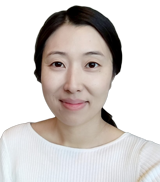One of our aims at the Centre for Asian Christianity, is to lift up and hear the stories of those who have been serving in Asian ministry long-term. So let’s get to know Charlene Delos Santos, a prominent female leader of Filipino heritage who has been serving among culturally diverse and marginalised communities for over 20 years.

In recognition of the idea that Asians are not a monolith, would you mind sharing your specific ethnic heritage and what makes it unique compared to other Asian cultures?
My ethnic background is Filipino and I think for Filipinos, with our history of colonisation by Spain, America and Japan, as well as having so many people groups and languages, we bring this sense of multiculturalism and diversity. There’s a mix of East and West, and being able to juggle multiple cultures and languages. I think this mix is reflected in our food, and ability to navigate cultures, and live all over the world (So many Filipinos everywhere!)
There are two words that capture our values as Filipinos. The first is ‘Kapwa’, which gets translated as ‘kindred’, or ‘neighbour’, and the second word is ‘Bayanihan’, which means the spirit of communal unity. These get lived out by recognising that every person’s responsibility is not only to themselves but to others – we have a strong communal and collectivist mindset, which I love.
How did you end up in Australia?
I migrated to Melbourne at the age of 6 with my family. We already had extended family here in Australia, but the story begins with my uncle. Apparently, my uncle was initially lining up at the immigration office in the Philippines to apply to migrate to the USA. But then a friend of his noticed that the line to apply for migration to Australia was shorter, so he decided to switch lines! And so he was the first of his siblings to migrate to Australia, and then slowly some of our extended family were able to migrate over. The main reasons were for economic opportunities and a better life for our families.
Could you share a bit about your faith journey? What brought you to Christ and why do you remain in him?
I grew up in what was considered a cult at the time! (Long story!) Within this cult, the idea of God as the Father was already planted, however the theology was very legalistic. By God’s grace, this cult changed its theology, and became an evangelical church. This then opened up opportunities for me to experience the wider church, and it was through my youth group’s engagement with events such as Youth Alive that I came to decide to follow Jesus as a teenager. During these key events was where I experienced a powerful embrace of God’s love surround me.
From there I got involved in Scripture Union schools ministries and camps, and I just wanted my friends to know the love of God and to follow Jesus as well. In these early years, I got to meet some amazing youth workers, who shared their faith, and how their faith informs their daily lives and choices. I learnt more about God’s heart for justice and for the marginalised and this heartbeat continues to fuel my discipleship.
Many Asians have faced opposition from their parents when they decided to go into ministry. Did you face any such or other cultural barriers to entering ministry?
Yes, early on my parents didn’t quite approve of me going to Bible College. I came to faith around Yr 10-11 and after high school I just wanted to serve God and go to Bible College. Being a pastor wasn’t quite the life they had intended me to have here in Australia I’m sure! But a Vietnamese Christian youth worker at the time helped me navigate some of that cultural expectation, as well as see what ways I could still grow in this ministry. I ended up studying a youth work degree instead at RMIT (which I’m glad I did!), and still have opportunities for ministry placements in various organisations.
My parents came around and have been super supportive in all my ministry settings. It was just difficult for them at the beginning to come to terms with the idea that their daughter wanted to be in ministry.

How did you end up working for Scripture union and what was your role there?
Scripture Union was the first organisation that I got connected with whilst in high school, through another Christian friend. The field worker in my region (who was also the Vietnamese youth worker I mentioned), supported me as a young person seeking to make a difference in his school. I ended up as an intern at SU, and got involved in the schools ministry department as well as camps. After I finished my youth work degree, the field worker was finishing up in his role, and I had the opportunity to apply. And that’s how I ended up on staff.
My role evolved during my time at Scripture Union. I initially was doing youth work with young people from Asian backgrounds in high schools in Melbourne’s western suburbs, and then it broadened to coordinating different schools ministries in partnership with local churches as well as implementing the Chaplaincy program. I was also running internship programs, which attracted young leaders from culturally diverse backgrounds.
Much of the work I was doing was helping churches think about community development approaches to school ministry.
For those who don’t know, who or what is Surrender? And what did your role there involve?
After 11 years at Scripture Union, I asked God where I could be serving next. I felt led to think about where I could serve in the areas of developing young leaders from culturally diverse backgrounds. And God gave me the opportunity to serve at Surrender.
Surrender is a network that calls people to follow Jesus in the margins, through amplifying voices from the margins, as well as supporting existing practitioners doing the work of incarnational mission and justice.
I knew Surrender valued the voices of First Nations peoples, and celebrated diversity and culture though attending their annual conferences and seeing the various people involved and the people who were platformed.
So I served as operations director and as co-director over my 6 years there. I got to meet and connect with so many people who are passionate about justice and explore how intercultural ministry could look like.
Where are you currently serving and in what capacity?
Now I am at the Baptist Union of Victoria as the Multicultural 2nd Generation Coordinator. I serve the next generation of the culturally diverse Baptist churches in Victoria by curating gatherings and conferences and providing training opportunities.
Looking back over your various ministries, what were the biggest challenges and what were the best highlights?
I have served in ministry teams which have been predominately white, so the challenge sometimes has been feeling alone in my experience of usually being the only person of colour.
So some of the best highlights were that because I was one of the few people of colour in these organisations, I attracted other young people from diverse cultural backgrounds who wanted mentoring and support in their faith. I knew the importance of having culturally safe spaces where they could be their full selves and tried to provide that for them.
Why are you so passionate about intercultural ministry?
I think God has created people from so many different cultures, and that it is a gift to the wider Church. Having people see various perspectives will only create new possibilities that I think will help solve complex problems. When we bring all of who we are into the spaces and places we are part of, we get a glimpse of who God is and how big God is. We will only be richer from learning from each other! And who doesn’t want all the different food around?!
What do you think are the greatest needs of the emerging leaders from migrant backgrounds?
I think support for the long haul in ministry is a great need. And one of the greatest opportunities is having key mentors or coaches to be able to reflect and discern God’s voice in the midst of a very busy schedule as well as juggling many demands and responsibilities from their various communities.
How can the Christian community be better at creating spaces of belonging and inclusion?
Learning to listen well, being curious about people’s cultures and lives, breaking the barriers towards participation (e.g. accessibility in different languages, financial accessibility to theological studies etc). Learning to be true family and community to each other where we invite people into our lives. And it’s ok to make mistakes, but let’s be willing to go on the journey of lifelong friendships with people!

